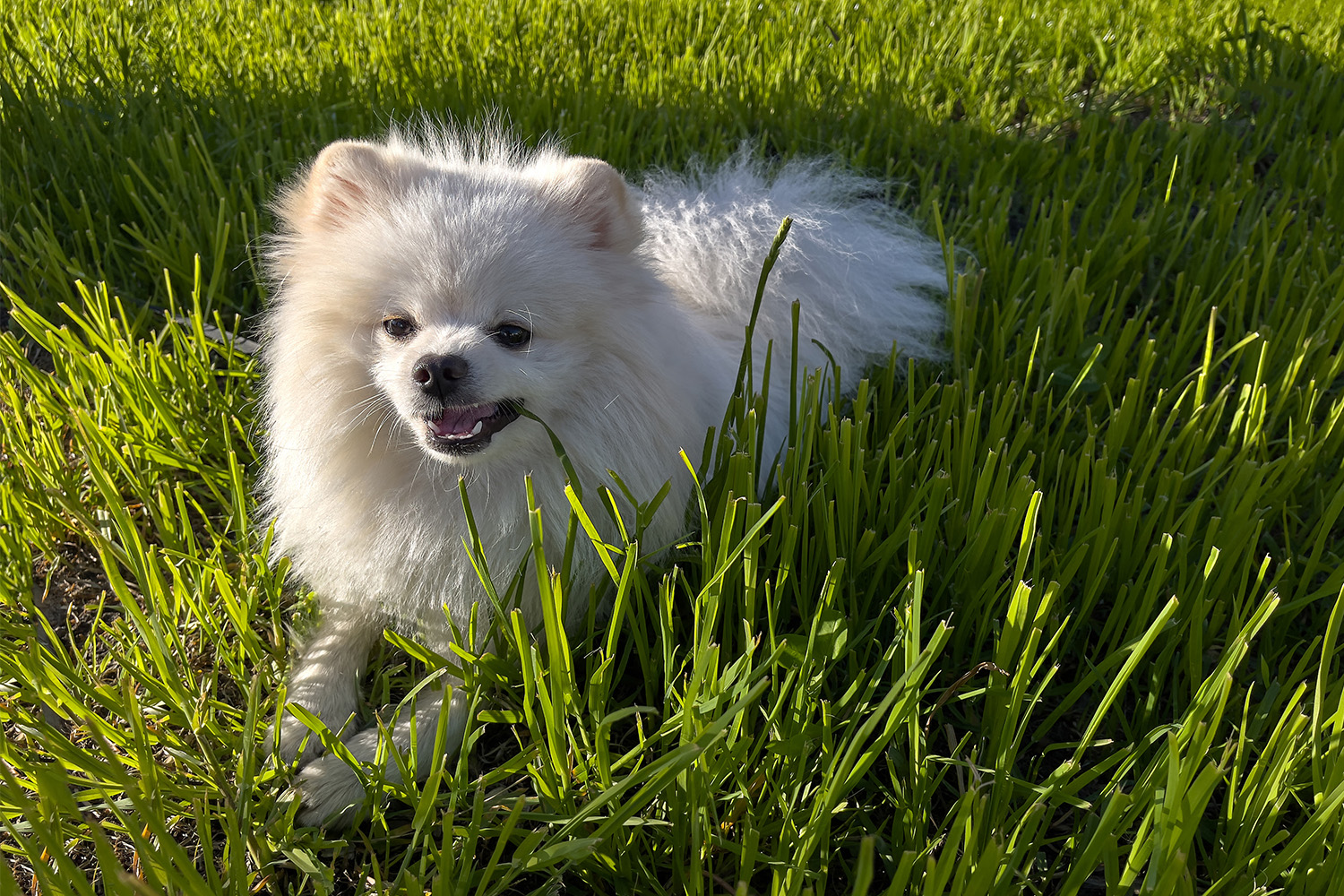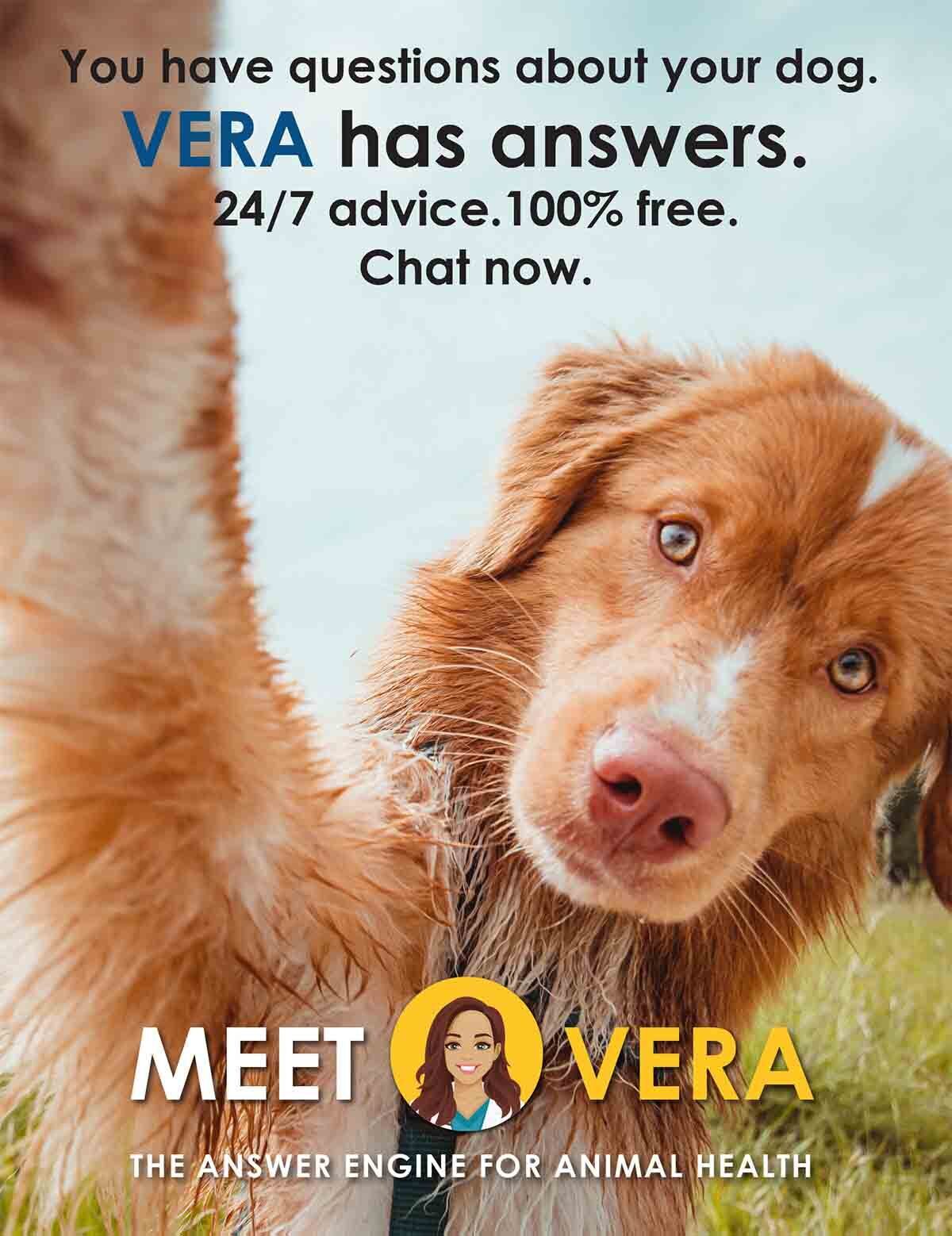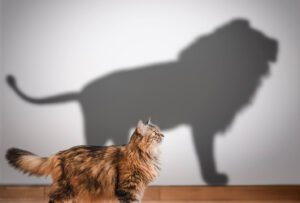You turn your back for one second, and your dog is taking in a mouthful of grass. Why, you might ask? The reasons for your dog to be eating grass can vary. There is not only one reason for your dog to eat grass whenever you go outside, but it’s also not something to always be worried about.
In fact, the more you tell your dog not to eat grass, the more likely it is that they’ll think it’s a game. Before you rush your dog to the vet, read on to learn more about five common reasons why your dog is treating your lawn like a salad bar.
Is Eating Grass Bad For My Dog?
Most dog owners associate a dog eating grass with them having an upset stomach or simply being hungry. Unfortunately, it’s hard to determine what comes first: the upset stomach and then the eating of grass to soothe it, or the eating of the grass and it resulting in an upset stomach.
Eating too much grass might make your dog vomit if they aren’t used to eating grass. Additionally, it might be a sign that something else is lacking in your dog’s diet. Keep an eye on your dog’s grass intake, and don’t be afraid to interfere if it’s clearly making your dog sick. Some grass does include pesticides, fertilizers, and herbicides that can make your pet sick.
Why Does My Dog Eat Grass? Common Reasons Why Dogs Eat Grass
Dogs eat grass for a number of reasons, none of which give a simple answer. Some dogs enjoy munching on the roughage and won’t overindulge to the point that it makes them empty out their stomach contents. A few might think that it’s a game of keep-away, doing it in a playful sense. For most, this form of plant-eating is a rather common and natural behavior.
Some canines will experience anxiety or stress ,and it can result in them nibbling on grass, similar to the way a person might bite their fingernails when anxious. Not every reason for your dog’s grass-eating behavior should concern you, but monitoring what your dog eats is wise.
Nutritional Deficiency
The literal term to define a dog who eats non-food items is pica. This can be associated with a nutrient, mineral, or vitamin deficiency. Most dogs get the recommended nutrition naturally in their well-balanced diets, so eating grass isn’t always a clear indicator of that being the problem. However, eating grass may signify that your dog needs to start a high-fiber diet to get the nutrients and roughage they need.
If your pup is eating grass frequently, consult with your DVM about the dog food you are feeding your pet. You might need to switch up your pet’s food and find something that has more vitamins, nutrients, and minerals.
Anxiety
Dogs — especially younger dogs — that are experiencing anxiety might eat grass to self-soothe. If your dog thinks you are going to be leaving soon, the taste of grass might calm their nerves.
If they know that eating grass is a frowned-upon behavior, they might begin to eat more of it as their anxiety increases, almost as a way to get attention from their humans. Sometimes bringing chew toys or a good-smelling shirt outside with you can ease your dog’s anxiety and limit their need to chomp on some grass.
Boredom
Dogs often get bored when they are outside and look for any sort of stimulation. To be fair, eating grass is probably better than them trying to eat rocks or sticks. At some point in our childhood, it’s likely we’ve put grass in our mouth as if it were a vegetable, so we can’t blame our dog for doing it themselves!
Most dogs would rather be entertained by their humans, and so if they are left outside alone for any amount of time, eating grass sounds like a way to entertain themselves.
Getting a Quick Snack
It may be that your dog simply enjoys the taste or texture of grass. They might have tried it once and figured out that it was a nice snack to get while outside. Many dogs will grab a mouthful while walking as if taking a snack on the go. Unfortunately, this curiosity and interest in food may motivate your dog to eat other gross stuff they find along the path (such as another animal’s poop).
Again, monitoring what your dog is consuming is your best course of action. That way, you can keep track of anything that might cause her an issue later on.
Instincts
Before wild dogs were domesticated, they scavenged for food. While they have always eaten both meat and plants, most people assume that dogs need meat and only meat to survive. Grass has a lot of fiber in it and can help with digesting food. Additionally, it’s easy to come across, so when you’re hungry, you’ll take what you can find.
Your dog might just be grazing because it’s a part of their instinct to scavenge for food. There’s no real reason to stop your dog from exhibiting normal dog behavior, only if it’s going to hurt them in the long run.
How Do I Stop My Dog From Eating Grass?
While it’s not necessarily the worst thing that your dog can do, you might not want your dog to eat certain types of grass or eat grass altogether. There are a few ways that you can limit the amount of grass that your dog eats when outside and on walks.
- Teach your dog the “Leave it” command. When your dog is eating grass, you can call out this command; over time, it should become known that grass is off-limits, and hopefully, your dog will pick up on that.
- When outside, keep him occupied with toys or playtime. If they start to eat grass, redirect them with a toy.
- Keep houseplants away from dogs; anything leafy and green might attract your dog. Recall that certain houseplants are toxic to pets.
- Feed your dog smaller and more frequent meals so that you satisfy their desire to eat high-quality food instead of grass.
Get Answers With AskVet
Whenever a question arises about a pet, it can send a person into a frenzy. Trying to find the best answers can be difficult, but not when you have AskVet. Any questions that you have about your animals can be answered by the Certified Pet Lifestyle Coach™ (CPLC™) at any time of the day.
Schedule a remote session to get started on building a 360° Pet Care plan unique to your animal. You can discuss your pet’s diet and nutritional needs, exercise needs, or any health concerns you might have with an expert only a few clicks away.
Plus, you gain access to a network of other pet lovers in the AskVet Clubhouse who are just trying to navigate being a pet parent. Sign-up today to learn more about AskVet and how it can be beneficial to you!
Sources:
Grass Eating Patterns In The Domestic Dog, Canis Familiaris | University of New England
Unusual Eating Habits in Dogs and Cats | UC Davis Veterinary Medicine






